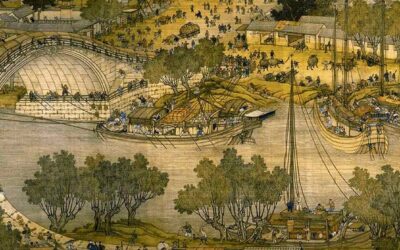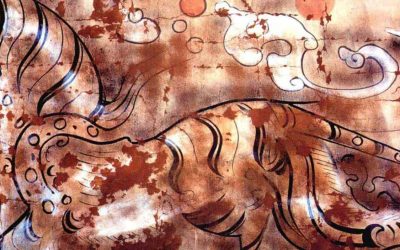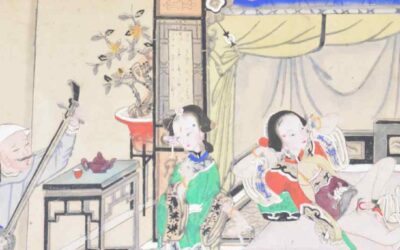Gu illness resulted from a contamination by gu poison, which a recent analyst has characterized as “an alien evil spirit which entered [the] body and developed into worms or some similar animal that gnawed away at the intestines or genitalia.” This poison was thought to be picked up in damp and humid wetlands, and after a considerable incubation period, it would cause severe symptoms, including derangement and debauchery, ending in death. …As it turns out, the gu itself was produced from the sexual secretions of men and women engaged in lascivious and incestuous intercourse, or from the similar secretions of various insects and animals purposely cultivated by a person with the intention of poisoning another. These and other accounts point to an origin of gu in an abnormal and degenerate intensification of the emotions, and N. H. van Straten has persuasively argued for a connection with the transgression of taboos on sexuality and aggression: This gu poison and various related aspects can be considered to represent an intensified materialization of the various notions which centered on fear of the instincts as causes of disorder. In theory this disorder was believed to be the natural concomitant of disturbed sexual relationships and the overt expression of aggression that had been dormant for a long time. In practice this meant the repression of the instincts in order to cut out potential sexual and social conflicts; and the psychological problems that arose from this demand are concreted in the concepts of gu poison.
Davis, Edward L. Society and the supernatural in Song China. 2001 University of Hawai‘i Press. P. 90
Last posts
The Qingming Festival: From Spring Celebration to Festival of the Dead
The Qingming Festival: From Spring Celebration to Festival of the Dead The Qingming Festival (清明节) is today China’s Day of the Dead—the time when people remember their deceased relatives and travel to cemeteries located on the outskirts of cities, or to tombs built in...
Linghu Zhuan’s Skepticism Leads Him to the Underworld
Linghu Zhuan’s Skepticism Leads Him to the Underworld Linghu Zhuan was a man of great integrity who did not believe in gods or spirits. Whenever someone spoke of ghostly transformations or divine retribution in the afterlife, he refuted their words with compelling...
Did a Taoist Art of the bedchamber of male Homosexuality Exist?
Did a Taoist Art of the bedchamber of male Homosexuality Exist? This is the question posed by Zhang Wanrong in an intriguing article published last year in the journal Religions[1]. The Taoist Art of the bedchamber For those unfamiliar with the topic, among the...







